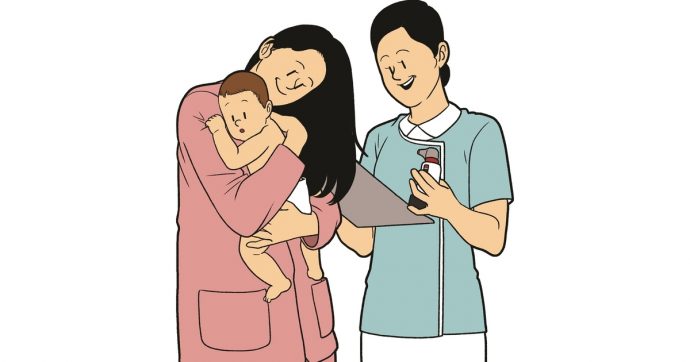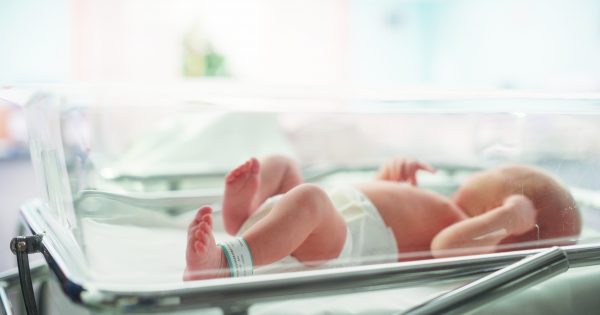Confinement practices are traditional post-natal practices for mothers. They are said to be in confinement as there are a number of traditional rules and prohibitions for them to adhere to.
These rules involve their diet and routine, and the confinement period may last from 30 to 44 days beginning from baby’s birth. Different cultures have slight variations of confinement practices and some of them may seem out-dated, and with little scientific basis. However, the purpose is still relevant: to support new mothers, let them recuperate physically and emotionally after childbirth, and help their transition into motherhood, especially for first- time mothers.
Traditionally, mothers of the new parents would be in charge of confinement care with help from confinement ladies (pui yuet or bidan) in taking care of the new moms and babies. Pui yuet in the Chinese community would come to stay with new mothers during the confinement period, while bidan in the Malay community would visit new mothers to give massages and hot compressions, apply abdominal wrappings, and other practices.
Confinement centres
Nowadays, mothers also have the option to check themselves into confinement centres that are growing in numbers and popularity. These centres usually provide lodgings and confinement meals for moms and babies, with laundry services and 24-hour support staff, including nurses, midwives or confinement ladies. Some centres may also provide confinement and baby products, as well as activities like parenting classes and massage sessions.
However, these centres may have different policies on certain matters. Some centres allow fathers to stay at the centre, while others only let fathers visit during certain hours. The policy on breastfeeding may also vary – most centres usually support moms to breastfeed, but there are centres that do not discourage formula feeding. Each centre may also have its own policies on observing confinement practices.
Concerns on regulation
The regulation of confinement centres has always been a grey area. Back in 2016, there was a statement by the then Deputy Minister of Women, Family and Community Development, Datin Paduka Chew Mei Fun, instructing confinement centres with no medical facilities to register with the Social Welfare Department under the Care Centre Act 1993. However, there is not much that the government can do against bad confinement centres, as there is no specific section on confinement centres in the law. They are also not covered by the Private Health Care Act. Hence, they are not bound to any standards or minimum requirements.
As of now, most of these confinement centres are merely recognised as businesses like spas or hotels, not medical facilities. Thus, if any issues or problems arise during mothers’ and babies’ stay at these centres, they are usually resolved in private between the centres and mothers. There is no dedicated avenue for mothers to raise the issue in case of dispute. This is made worse with the lack of medical experts (i.e. gynaecologist, paediatrician) in most centres to detect and diagnose any signs of complication in mothers and babies.
Government’s role
To address this issue, our law- makers have to work towards drafting new laws or amending existing laws to regulate confinement centres, and protect the mother and baby from unwanted incidences. In the meantime, mothers who are looking for confinement care can opt for the post-natal care package that is provided for free by the Traditional and Complementary Unit in several government hospitals.
The Ministry of Health also provides post-natal care home visits by nurses. A nurse from the nearest health/community clinic will visit the mother’s house on certain days after birth (Day 1, 2, 3, 4, 6, 8, 10, 15, and 20) to monitor the health status of both mother and baby.
Apart from that, there is also the MamaCare programme by LPPKN which trains elderly women and single mothers from low income households in holistic postnatal care services. Upon completion of the programme, they will receive the Certificate of Professional Massage Practice, which is recognised by the government. MamaCare practitioners can further improve their skills and knowledge in providing holistic postnatal care at Diploma level through LPPKN’s MamaCare program with accreditation from Department of Skill Development, Malaysia.
It is fine for mothers to follow confinement practices, as long as they do not cause any harm to the body, and they are not missing out on any nutritional requirements. Refer to doctors if there is any doubt about any confinement practices and you experience of shortness
of breath, rapid breathing, chest pain or coughing up blood during confinement care (this are among the symptom of pulmonary embolism). When choosing to stay at a confinement centre, do comprehensive research, make sure the staff are certified and experienced, and carefully review the contract before committing to the confinement centre.
An educational collaboration with Obstetrical and Gynaecological Society of Malaysia.







Comments